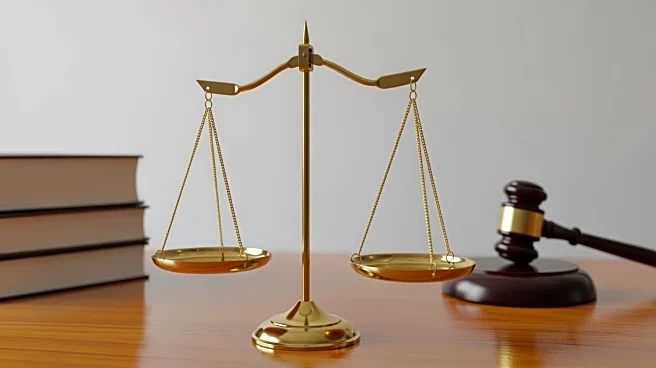What's Happening?
The Supreme Court is set to hear arguments regarding President Trump's use of global tariffs, which have been a significant part of his economic and foreign policy strategy. The case questions whether Trump overstepped federal law by using the International
Emergency Economic Powers Act (IEEPA) to impose tariffs, a power traditionally reserved for Congress. Lower courts have previously ruled against Trump, stating he exceeded his authority under IEEPA. The Justice Department defends the tariffs as part of Trump's foreign affairs powers, arguing that the courts should not second-guess the president in this domain. The outcome of this case could significantly impact Trump's ability to use tariffs as a tool for foreign policy.
Why It's Important?
The Supreme Court's decision will have far-reaching implications for U.S. foreign policy and economic relations. If the court rules against Trump, it could limit his ability to use tariffs as leverage in international negotiations, potentially altering the dynamics of U.S. trade agreements and foreign relations. This decision could also influence how future presidents wield executive powers in economic matters. Businesses and consumers may feel the impact through changes in trade policies and potential price adjustments. The case highlights the balance of power between the executive branch and Congress, particularly in economic and foreign policy matters.
What's Next?
Should the Supreme Court rule against Trump, it may prompt a reevaluation of recent trade agreements and strategies that relied on tariff threats. The administration might seek alternative legal avenues to justify tariffs, though this could involve more complex processes. Foreign governments may reconsider their trade relations with the U.S., potentially leading to renegotiations or shifts in alliances. The decision could also set a precedent for the scope of presidential powers under IEEPA, influencing future administrations' approaches to economic emergencies.
Beyond the Headlines
The case underscores the evolving use of tariffs in U.S. foreign policy, traditionally seen as a tool for addressing trade practices rather than broader geopolitical strategies. Trump's approach has challenged conventional norms, using tariffs as a means to exert pressure on foreign governments for various political and security objectives. This strategy has sparked debates on the ethical and legal implications of using economic measures as a form of political leverage, raising questions about the long-term impact on international trade norms and U.S. diplomatic relations.

















